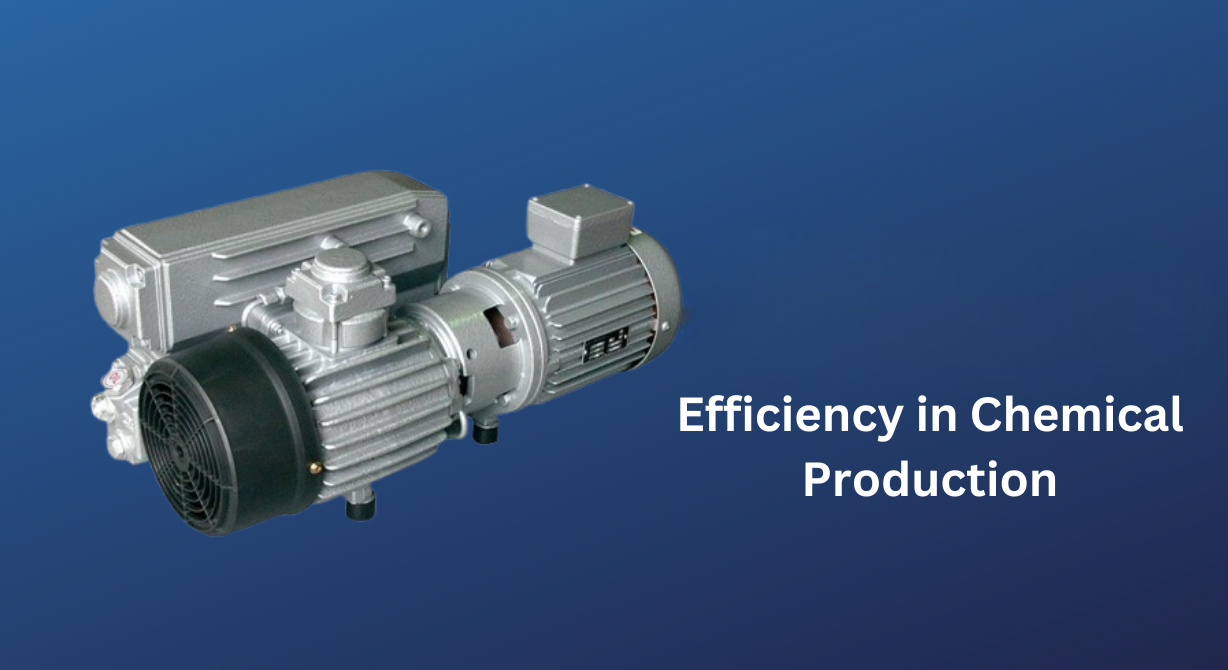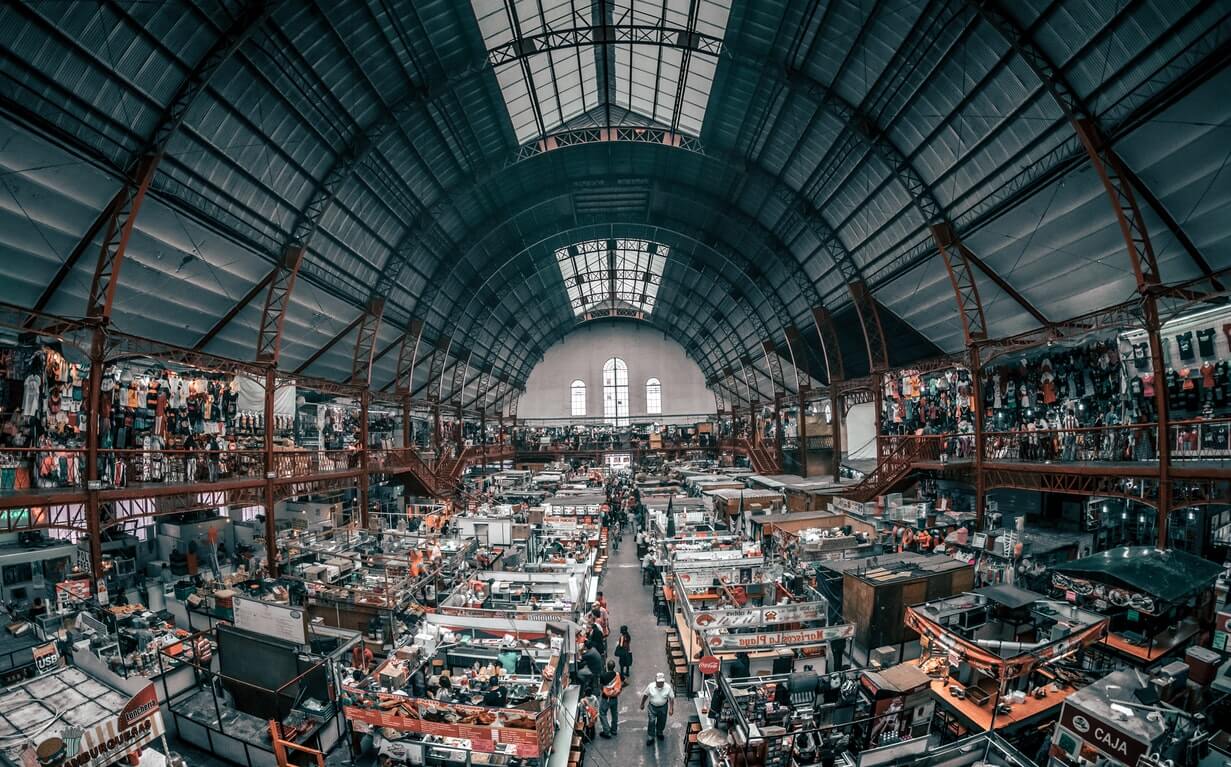Vacuum Power in the Future of Manufacturing: In Which Areas Has It Become Indispensable?
Table of Contents
- Quality Assurance in Food and Beverage Production
- Precision and Safety in Pharmaceutical Production
- High Technology in Electronics Manufacturing
- Innovation in the Automotive Sector
- Efficiency in Chemical Production
- Sustainability in the Energy Sector
- Speed and Protection in Packaging Technologies
- Boundary-Breaking Research in Aerospace
Quality Assurance in Food and Beverage Production
Vacuum pumps are an indispensable tool in the food and beverage industry for quality assurance and keeping products fresh for extended periods. Vacuum packaging technology prevents products from coming into contact with oxygen, significantly slowing down spoilage. For sensitive products like meat, fish, vegetables, fruits, cheese, ready meals, and even coffee, this method preserves both nutritional value and flavor. Especially for companies shipping to global markets, this technology ensures products maintain their quality during long-distance transportation. In the future, the use of energy-efficient and eco-friendly dry vacuum pumps is increasing. These pumps eliminate the need for oil, reducing maintenance costs and facilitating compliance with food safety standards.
Vacuum technology is not limited to packaging. Vacuum drying processes are widely used in the production of milk powder, fruit concentrates, and spices. This method enhances quality by preserving the natural aroma and color of products. For instance, vacuum processing of coffee beans prevents flavor loss, ensuring consistent quality worldwide. Additionally, vacuum distillation systems used in beverage production optimize purity and taste for products ranging from alcoholic beverages to fruit juices. These technologies accelerate production processes while reducing waste, delivering both economic and environmental benefits.
Precision and Safety in Pharmaceutical Production
The pharmaceutical industry cannot meet high precision and safety standards without vacuum technology. Vacuum pumps play a critical role in laboratories and production facilities by creating sterile environments. These pumps maintain the purity of chemical substances while eliminating contamination risks. For example, vacuum drying ensures the processing of active pharmaceutical ingredients without degradation, enhancing efficacy and reliability. In the future, the use of oil-free vacuum pumps is becoming standard in this sector, reducing contamination risks to near zero.
In biotechnology, genetic engineering and vaccine production rely on vacuum systems to provide controlled environments that improve experiment accuracy. For instance, vacuum technology used in mRNA vaccine development ensures component stability under low pressure. Additionally, vacuum-assisted devices in hospitals, from surgical tools to blood collection systems, make a difference across healthcare services. These pumps, with their compact and quiet designs, offer user-friendly solutions in both labs and clinical settings. In the pharmaceutical sector, vacuum technology transforms not only production but also research and development processes.
High Technology in Electronics Manufacturing
The electronics industry leads in high-technology production processes thanks to vacuum pumps. Ultra-high vacuum environments are essential for manufacturing microchips, display panels, batteries, and sensors. These environments eliminate dust and gases, enhancing product quality. Vacuum coating processes optimize the durability and performance of devices, from smartphones to electric vehicle batteries.
In the future, eco-friendly dry pumps simplify waste management in electronics manufacturing and support sustainability goals. For example, vacuum technology in solar panel production increases energy efficiency while reducing costs. Vacuum systems in semiconductor manufacturing enable devices to become smaller, faster, and more powerful. Additionally, these pumps play a critical role in precision equipment like electron microscopes and laser systems. The electronics sector continues to push technological boundaries with vacuum technology.
Innovation in the Automotive Sector
The automotive industry supports innovation by using vacuum pumps in both production processes and vehicles. In vehicles, brake systems and emission control units rely on vacuum pumps to enhance safety and performance. In hydraulic brake systems, these pumps allow drivers to brake effectively with less effort. In the future, with the rise of electric vehicles, compact and lightweight pumps are gaining importance. These pumps optimize energy efficiency in battery cooling systems and cabin climate control, extending vehicle range.
In production lines, vacuum technology plays a versatile role. Plastic injection molding is used to manufacture dashboards, interior trims, and other plastic components. Vacuum pumps remove air from molds, ensuring flawless material placement and preventing surface bubbles. Similarly, in laminated glass production, vacuum ensures windshields are bonded without air bubbles, crucial for both aesthetics and durability. Vacuum packaging of automotive parts protects against corrosion during storage and transportation. Engine components and chassis parts, when vacuum-sealed, remain shielded from moisture and oxygen, preserving quality over time.
In the future, with the rise of robotic production lines, vacuum pumps are increasingly used in part handling and assembly. Vacuum grippers enable the safe transport of delicate components by robotic arms. Additionally, in sustainability-focused production, vacuum pumps play a key role in resin transfer molding for lightweight materials like carbon fiber, contributing to the development of more fuel-efficient and eco-friendly vehicles.

Efficiency in Chemical Production
The chemical industry enhances efficiency with vacuum technology. Vacuum distillation, filtration, and drying are fundamental methods for purifying chemical substances. Water ring vacuum pumps, with their high suction capacities, ensure the safe processing of hazardous gases and materials. In the future, pumps made from corrosion-resistant materials offer long-term durability, reducing maintenance costs. For instance, vacuum systems in petrochemical plants provide precise control in separating crude oil into components.
Creating low-pressure environments in chemical reactors boosts reaction efficiency, improving product quality and optimizing energy use. Vacuum technology is also used in producing paints, adhesives, and polymers. Eco-friendly pumps safely remove waste gases, making the sector more sustainable. The chemical industry leverages vacuum power to increase production capacity and develop innovative products.
Sustainability in the Energy Sector
The energy sector supports sustainability with vacuum pumps in both conventional and renewable energy production. In oil and gas extraction, these pumps enable efficient production. However, the real transformation is in renewable energy. Solar panel production uses vacuum coating to enhance energy efficiency, enabling higher energy output. Similarly, vacuum technology is used in manufacturing lightweight composite parts for wind turbines.
In biogas plants and wastewater treatment systems, dry vacuum pumps provide high reliability for processing waste and gases. These eco-friendly designs reduce carbon footprints. In the future, energy-saving vacuum systems deliver cost advantages while moving the energy sector toward a greener future. Vacuum technology transforms the industry with both environmental and economic benefits.
Speed and Protection in Packaging Technologies
The packaging industry delivers fast, secure, and efficient production with vacuum pumps. Vacuum packaging ensures airtight protection for food, pharmaceuticals, and electronics, reducing spoilage and damage risks. In the future, high-speed vacuum pumps boost production line performance, supporting mass production. For example, vacuum-sealed food packages extend shelf life while preserving freshness.
Plastic containers and cans benefit from vacuum molding, ensuring flawless shaping. This technology offers both aesthetic and functional packaging solutions. In line with eco-friendly packaging trends, vacuum systems provide high protection with less material use. The packaging industry enhances efficiency and contributes to sustainable production with vacuum technology.
Boundary-Breaking Research in Aerospace
The aerospace industry pushes boundaries with vacuum technology. Space simulation chambers use vacuum pumps to replicate the low-pressure environment of space for equipment testing. Ultra-high vacuum systems are used in manufacturing satellite components, telescopes, and other precision devices. Additionally, vacuum coating strengthens aircraft engines and aerodynamic parts, enhancing durability and performance.
In the future, energy-efficient and compact vacuum pumps make space research more accessible. For example, vacuum technology in producing lightweight materials for spacecraft reduces weight, improving fuel efficiency. This sector supports both scientific discoveries and technological innovations with vacuum power.
Vacuum pumps stand out as an indispensable force in future manufacturing. Offering flexibility, performance, and sustainability across industries from food to aerospace, they transform production processes. Eco-friendly designs and innovative applications make vacuum technology a cornerstone of modern industry.


